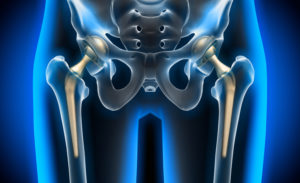Hip Replacement Revision Surgery – What You Should Know
Hundreds of thousands of hip replacement procedures are performed each year in the United States, with many of these procedures requiring the need for a subsequent “revision” procedure. Because of the substantial number of hip replacement procedures performed each year, patients who have had hip replacement procedures should have a good understanding of when a revision procedure may be necessary.
Signs of a Failed Total Hip Replacement
According to clohisyhipsurgeon.com, patients with a failed hip replacement may experience one or more of the following:
- Hip pain;
- Hip instability;
- Hip injury (such as one sustained after falling);
- Deterioration of the hip implant;
- Loosening of the hip implant;
- Osteolysis (bone loss); and
- Infection.
Anyone who has experienced or is currently experiencing any of the above-listed symptoms or injuries should consider seeking the advice of a qualified orthopedic surgeon who routinely handles hip revision procedures.
When Defective Hip Implants Fail and Cause Injuries
A hip replacement can fail for a variety of reasons, one of which is a defective hip implant. If the prosthetic medical device being implanted into a patient is defectively designed or lacks essential warnings, that patient is already at a disadvantage. While some patients may progress normally with a defective hip implant, many do not, requiring painful and debilitating revision procedures.
Hip implants typically enter the United States market without thorough testing to ensure they are safe and effective. Because there are so many hip implant products available for orthopedic surgeons to choose from, new devices are “cleared” by way of the Food and Drug Administration’s (FDA) fast-track 510(k) process. What this means is that new hip implants, which are medical devices, can be sold without testing if they are “substantially similar” to a product already on the market.
Although hip implants are all intended to work the same, not all devices are exactly the same. As such, while older devices on the market may be safe, newer devices may not be. When unsafe medical devices are used in hip replacement procedures, the patients are the ones to suffer.
In rare cases, an orthopedic surgeon’s negligence may cause or contribute to cause total hip replacement failure, but more often than not, a defective hip implant is the main cause. A common defect identified in hip implants causes the loosening of one or more pieces of the device. Loosening can lead to a whole host of symptoms that necessitate a revision procedure.
Without a properly functioning prosthetic hip, patients cannot operate as they normally would. Moreover, a patient may be worse off after a failed hip replacement than he or she would have been had the hip replacement procedure not been performed in the first place.
Contact a Hip Replacement Lawyer Today
If you have a failed hip replacement and have undergone a revision procedure (or have a planned revision procedure), you should consider speaking with a hip replacement lawyer right away. When dealing with injuries involving defective hip implants, acting quickly is essential to preserve your legal rights.
Each hip replacement lawyer at our firm strives to ensure they are helping injured clients seek compensation from defendants who manufacture defective medical devices. To receive a free case evaluation regarding a potential hip replacement claim, contact Searcy Denney today by calling (800) 780-8607 or by completing a case inquiry form on our website.
Share This



